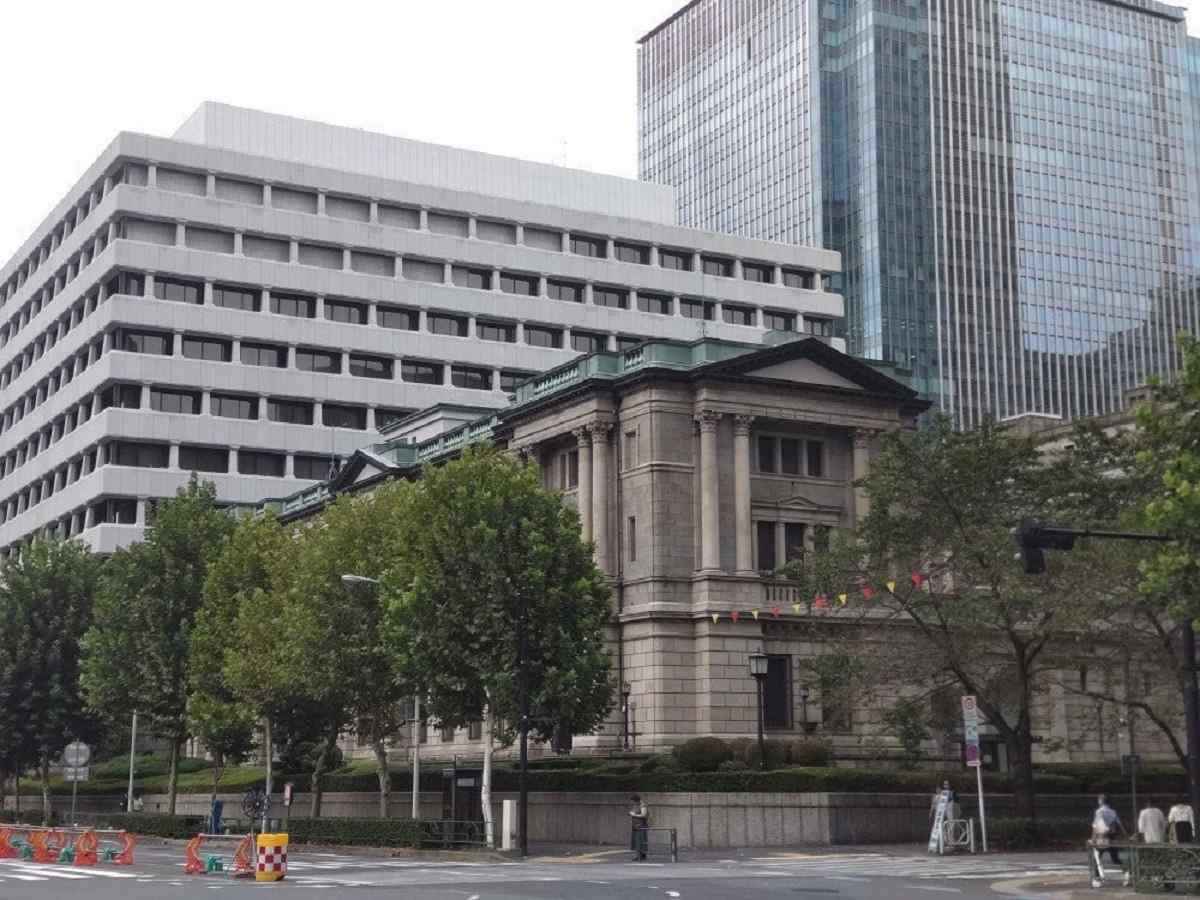
The Bank of Japan
16:05 JST, April 2, 2025
The results of the latest Tankan survey released by the Bank of Japan on Tuesday are likely to impact the central bank’s decision on whether to raise interest rates again.
In the survey, the figure for “change in output prices” rose slightly for large enterprises in both the manufacturing sector — a 28-point rise — and in the nonmanufacturing sector — a 32-point rise. It appears that the environment is conducive to companies passing on price increases, and price rises are becoming more persistent.
The figure was calculated by subtracting the percentage of companies that answered that sales prices would “fall” from the percentage of companies that answered that sales prices would “rise.”
The inflation outlook in the private sector also expects the rate of price increase to be 2.3% year-on-year in ***the next*** five years for the “all enterprises / all industries” category. The BOJ aims to achieve a stable rate of price increase of 2%, excluding temporary factors such as rises in the price of rice.
The results of the survey apparently confirm that economic and price conditions are progressing as the BOJ expected.
Regarding the economic conditions overseas, the full extent of the tariff policy of U.S. President Donald Trump’s administration is not yet clear. It appears the Tankan survey did not fully grasp the policy’s impact on Japanese companies.
At a press conference in March, BOJ Gov. Kazuo Ueda indicated his intention to closely monitor the situation regarding the U.S. policy.
“The uncertainty is quite large,” Ueda said.
The BOJ plans to analyze business sentiment based on information gathered from companies at a meeting of general managers of the bank’s branches nationwide to be held Monday.
At the next Monetary Policy Meeting to be held from April 30 to May 1, the BOJ will compile the Outlook for Economic Activity and Prices, also known as the Outlook Report. The bank will update its inflation outlook in the report.
“In order to assess the impact of Trump’s tariffs, the BOJ is expected to raise interest rates once every six months, with a July rate hike being the most likely scenario,” said Daiwa Securities Co. economist Kento Minami.
Top Articles in Business
-

Prudential Life Insurance Plans to Fully Compensate for Damages Caused by Fraudulent Actions Without Waiting for Third-Party Committee Review
-

Narita Airport, Startup in Japan Demonstrate Machine to Compress Clothes for Tourists to Prevent People from Abandoning Suitcases
-

Japan, U.S. Name 3 Inaugural Investment Projects; Reached Agreement After Considerable Difficulty
-

Toyota Motor Group Firm to Sell Clean Energy Greenhouses for Strawberries
-

SoftBank Launches AI Service for Call Centers That Converts Harsh Customer Voices into Softer Voices
JN ACCESS RANKING
-

Japan PM Takaichi’s Cabinet Resigns en Masse
-

Japan Institute to Use Domestic Commercial Optical Lattice Clock to Set Japan Standard Time
-

Israeli Ambassador to Japan Speaks about Japan’s Role in the Reconstruction of Gaza
-

Man Infected with Measles Reportedly Dined at Restaurant in Tokyo Station
-

Videos Plagiarized, Reposted with False Subtitles Claiming ‘Ryukyu Belongs to China’; Anti-China False Information Also Posted in Japan























